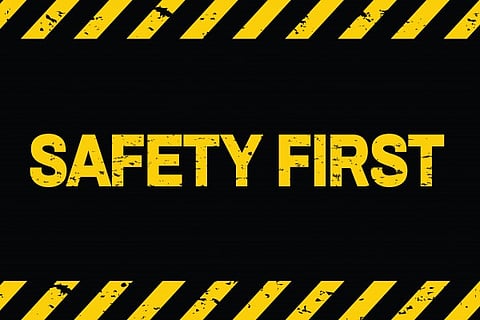
- News Updates
- PSU Watch
- Defence News
- Policy Watch
- हिन्दी न्यूज़
- Jobs Watch
- States News
- Event News

New Delhi: In the backdrop of a number of industrial accidents in recent times, industry experts and policymakers at a webinar organised by FICCI on Friday called in unison for stringent adherence to safety protocols in order to avoid these accidents. The statement comes as a gas leak continues at an oilfield owned by Oil India Limited in Assam.
In May, three industrial accidents were reported on the same day from different parts of the country. On May 7, at least 11 people died and over 1,000 were hospitalised after a major gas leak took place at the LG Polymers chemical plant in Vishakhapatnam. Later, seven workers were hospitalised after being exposed to poisonous gases while cleaning a paper mill. In another incident, two people died and six sustained burn injuries in a massive explosion at a boiler of a thermal power station of state-run NLC (Neyveli Lignite Corporation) in Tamil Nadu's Cuddalore district.
Major General MK Bindal, ED, NIDM, Ministry of Home Affairs, said on Friday that there are major risks involved in handling of hazardous chemicals in the industry and stressed on the need for effective implementation of the safety rules and regulations. "Rules and regulations are in place for industrial safety. The need is that all the stakeholders execute them on ground stringently and work towards zero accident approach," he said.
Addressing the FICCI webinar on 'Industrial Safety & DRR: Safe Storage and Handling of Hazardous Chemicals in the Industry', Major General Bindal also said that there is a need for seamless inventory management and strict audits of inventory as these will help in determining how to store the hazardous chemicals. He added that transportation of hazardous chemicals is another major issue that needs immediate attention. Better processes and mechanization is required to transport hazardous chemicals to avoid accidents, said Major General Bindal.
Lt Gen (Dr) J R Bhardwaj, Former Member, NDMA, and Chairman, CIDM, said that there have been many industrial accidents and several of them have occurred in storages. Hence, safety of storages with hazardous chemicals is important. With the increase in the number of isolated storages, the risk of accidents has also increased. Thus, it is essential to have risk assessment for isolated storages, he added.
In his presentation on 'Integration Strategies for Hazardous Substance Accident Prevention in Industries', Dr Gupta, Professor, NIDM, MHA, said that the government has introduced CAIRS (Chemical Accident Information Reporting System) Act to understand if accidents are being reported correctly in India.
Highlighting the role of PESO, RN Meena, Joint CCE, PESO, Ministry of Commerce and Industry, said that PESO has laid down SOPs to ensure safety in industries post lockdown. He added that PESO offices are also acting as nodal offices in states and ensuring that there is an adequate and prompt supply of oxygen for treating COVID-19 patients.
Ranjan Mehrotra, Director, OISD, Ministry of Petroleum and Natural Gas, said that it is essential to follow SOPs for avoiding industrial accidents. He added that rise in consumption of LPG has led to increased transportation of LPG by road. Hence, to avoid accidents, corrective measures are being put in place such as vehicle tracking systems and regular medical check-ups of drivers transporting LPG.
